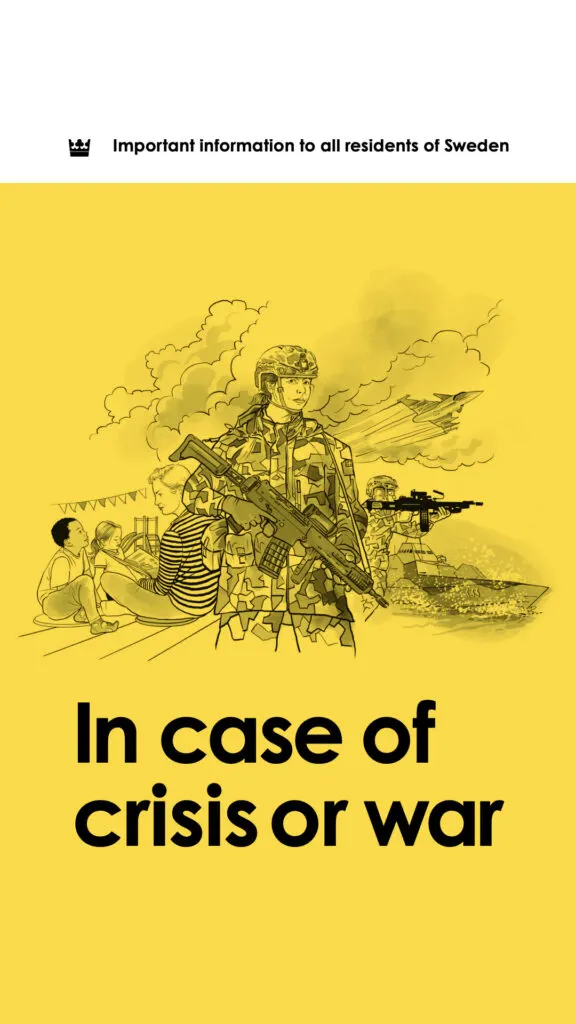Recently, the Swedish government distributed a pamphlet titled In Case of Crisis or War to every household in the country. It’s a practical, straightforward guide that highlights the importance of personal and collective preparedness during emergencies.
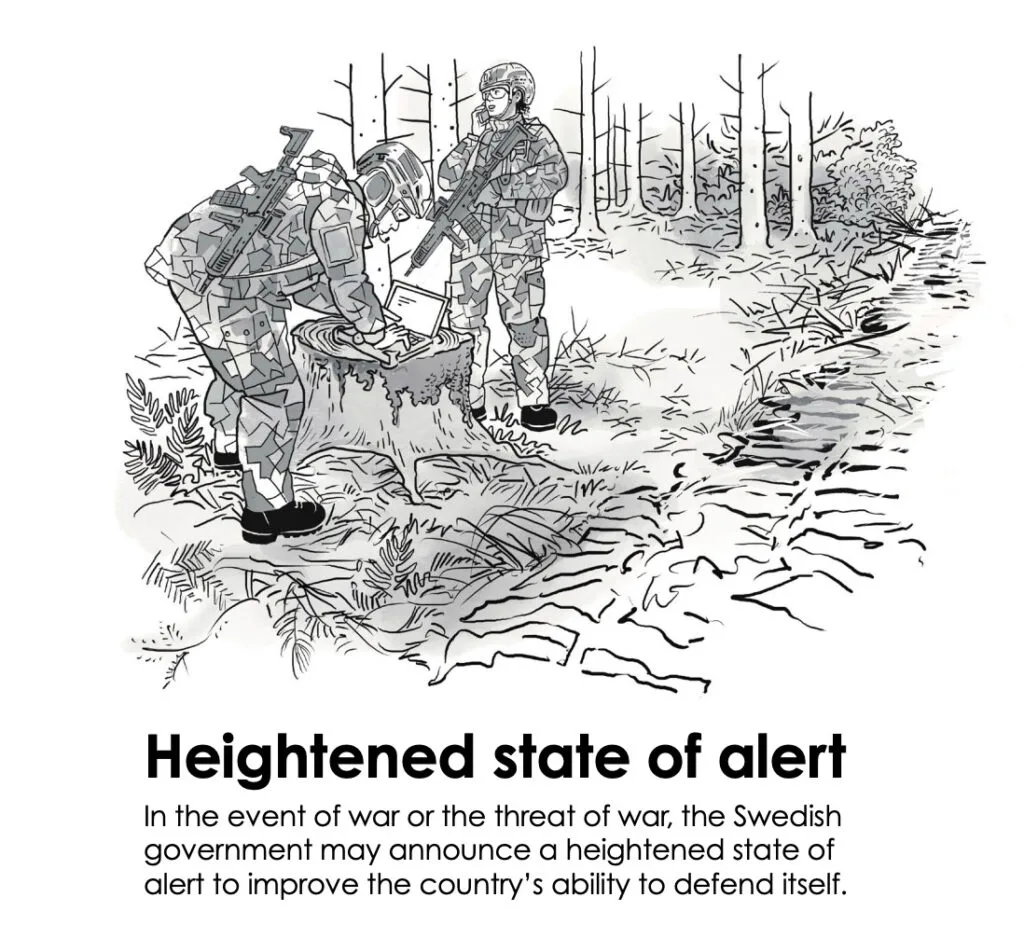
While it’s tailored to Sweden’s unique context, the principles outlined are universal.
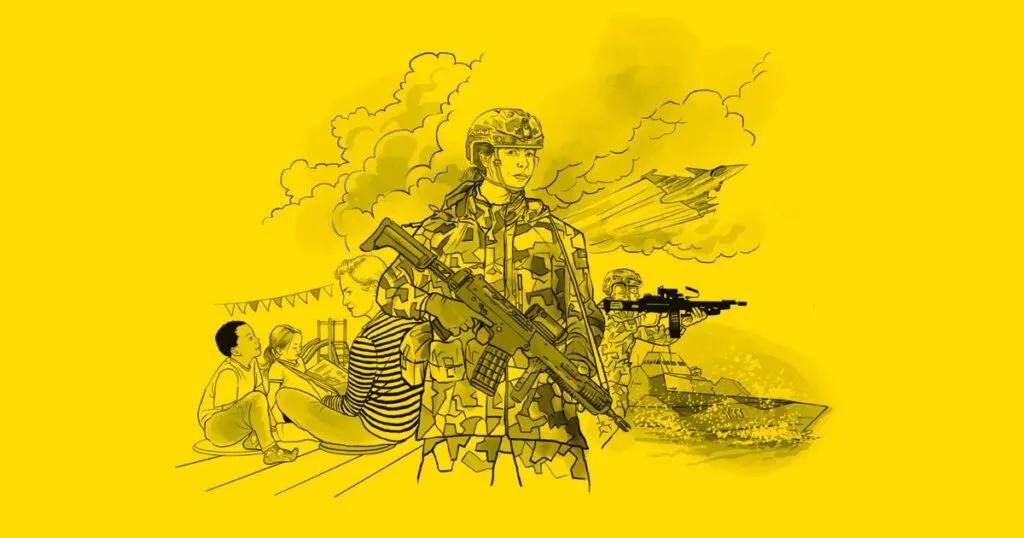
Below is a recap of the key recommendations, paired with insights on how we can adapt them to our preparedness strategies.

1. Home Preparedness is Key
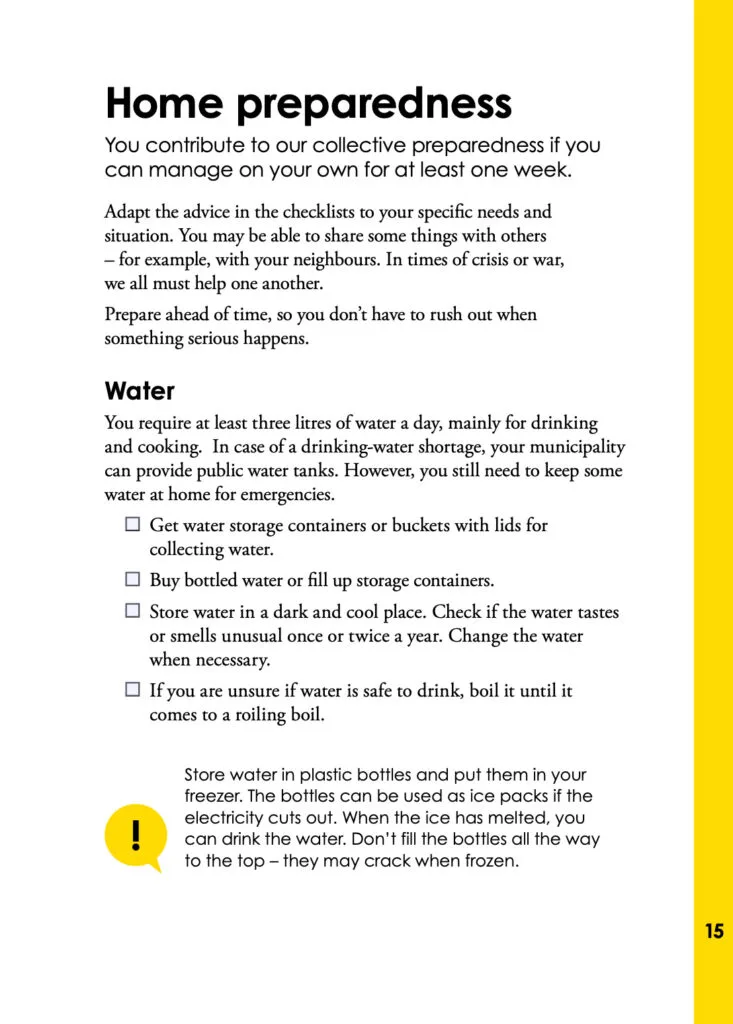
The Swedish government encourages individuals to be self-sufficient for at least a week. This starts with creating a home stocked with essentials:
- Water: Store at least three liters per person per day for drinking and cooking. Use durable containers, and consider freezing water bottles to double as ice packs. Rotate stored water regularly to ensure freshness.
- Food: Focus on non-perishable, energy-dense items like rice, beans, canned vegetables, and protein bars. The Swedish pamphlet also suggests high-fat options like nuts, peanut butter, and cooking oils for added energy.
- Heat and Shelter: Prepare for power outages with warm clothing, blankets, and sleeping bags. Invest in non-electric heating options like gas heaters and ensure proper ventilation when using them.
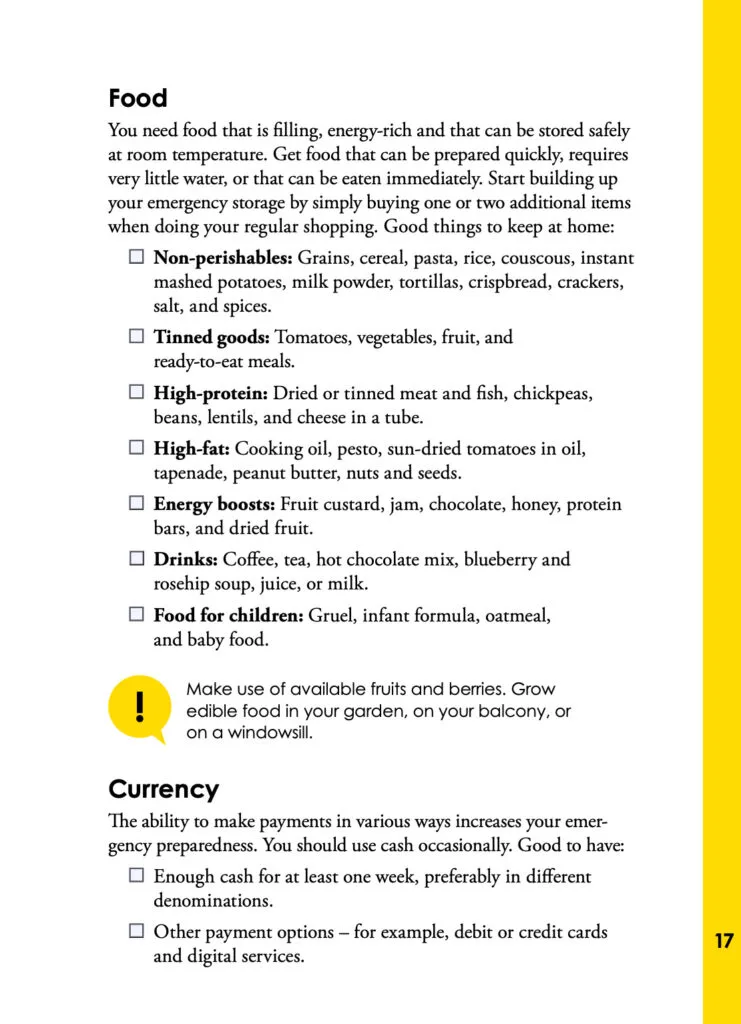
The overarching message? Stock up ahead of time to avoid scrambling during a crisis.
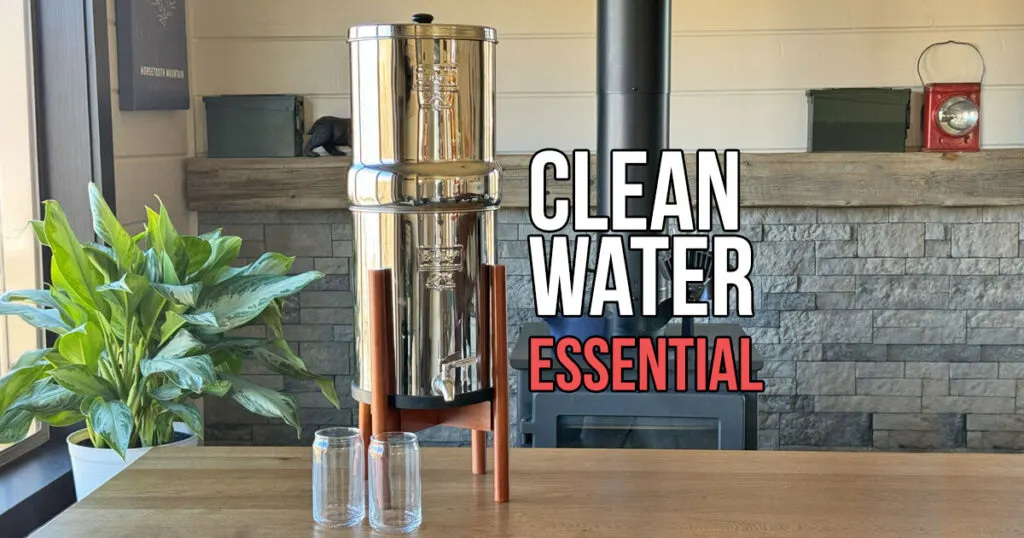
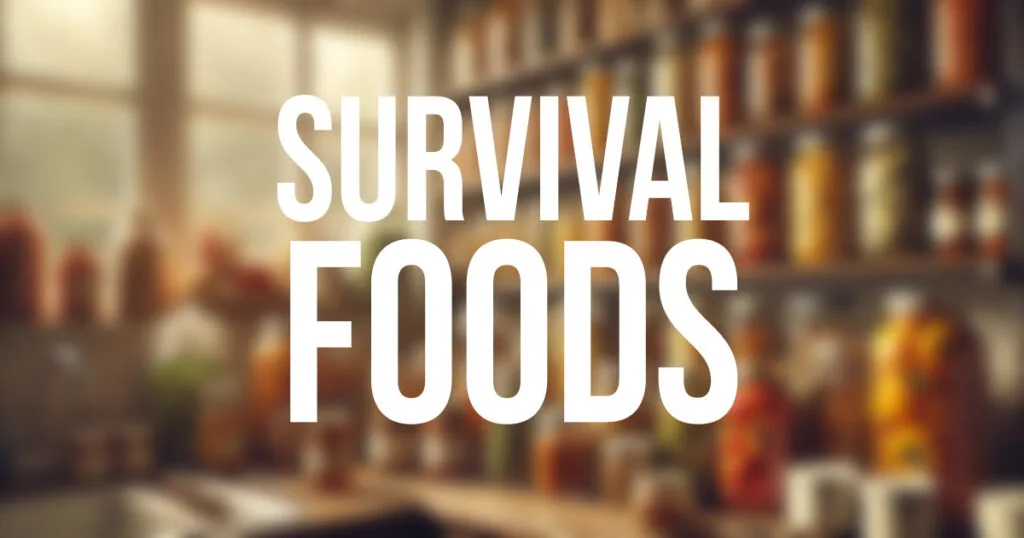

2. Communication and Information
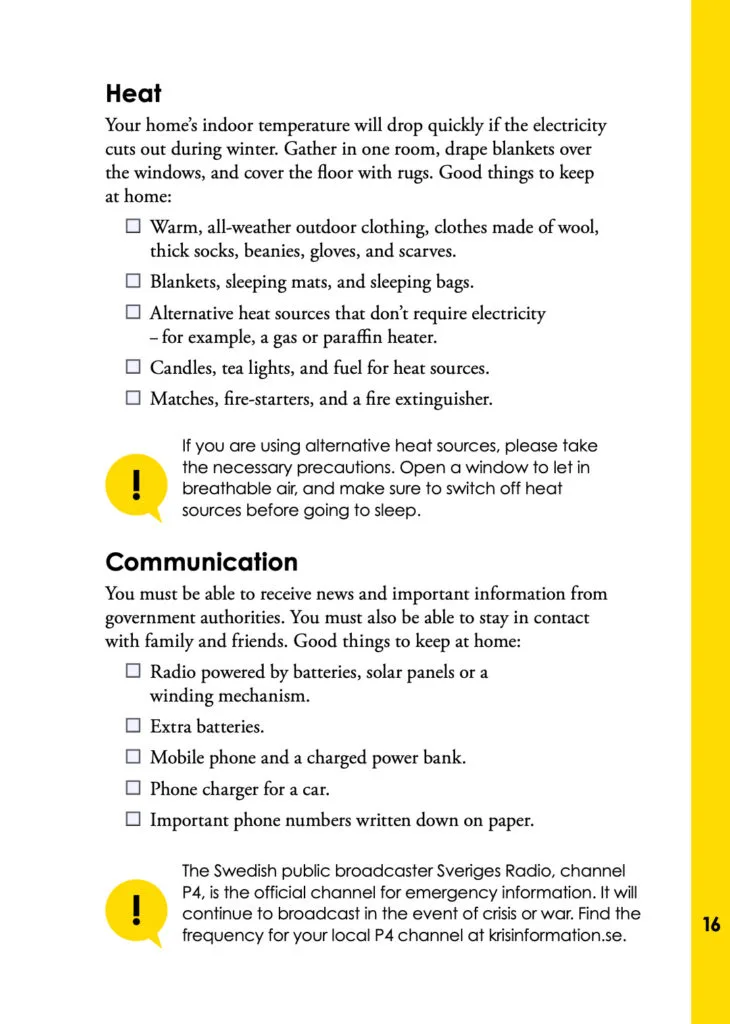
In emergencies, staying informed is critical. Sweden’s approach emphasizes the need for multiple communication methods to ensure access to vital updates:
- Keep a battery– or solar-powered radio to tune in to emergency broadcasts.
- Store extra batteries, a fully charged power bank, and written copies of important contact numbers in case digital systems fail.
This aligns with the principle of redundancy—always having backups for your most critical tools.
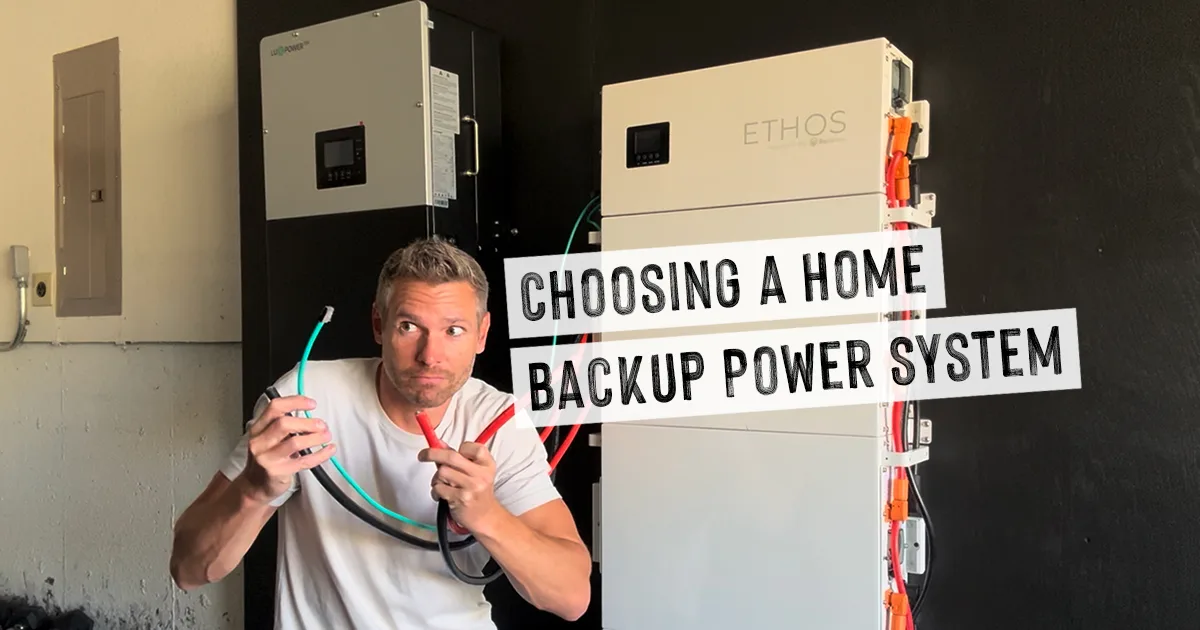
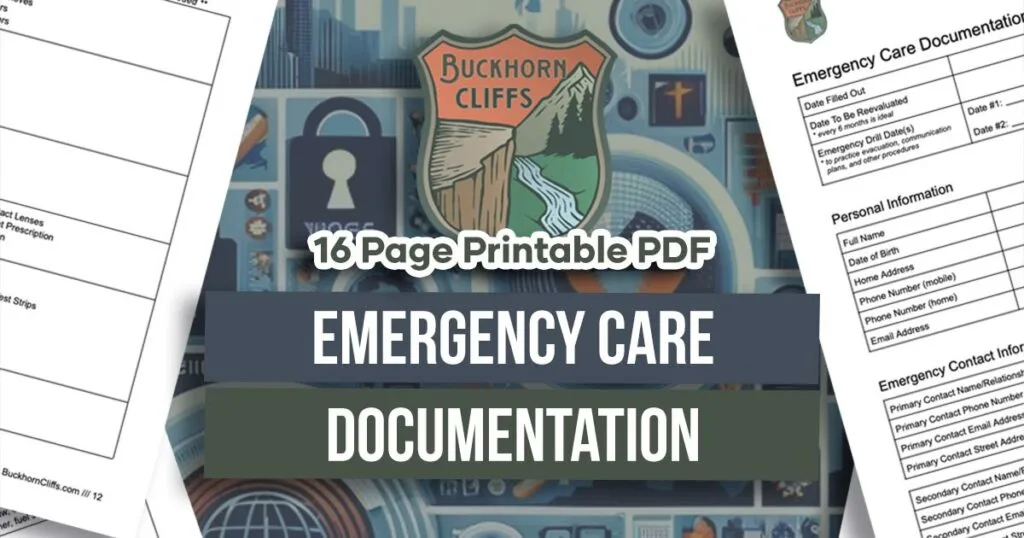
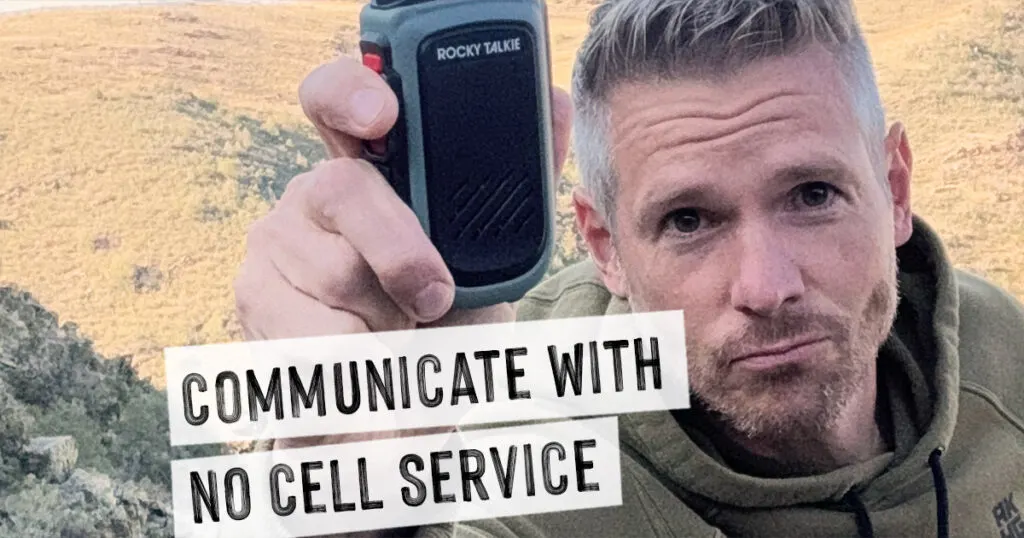
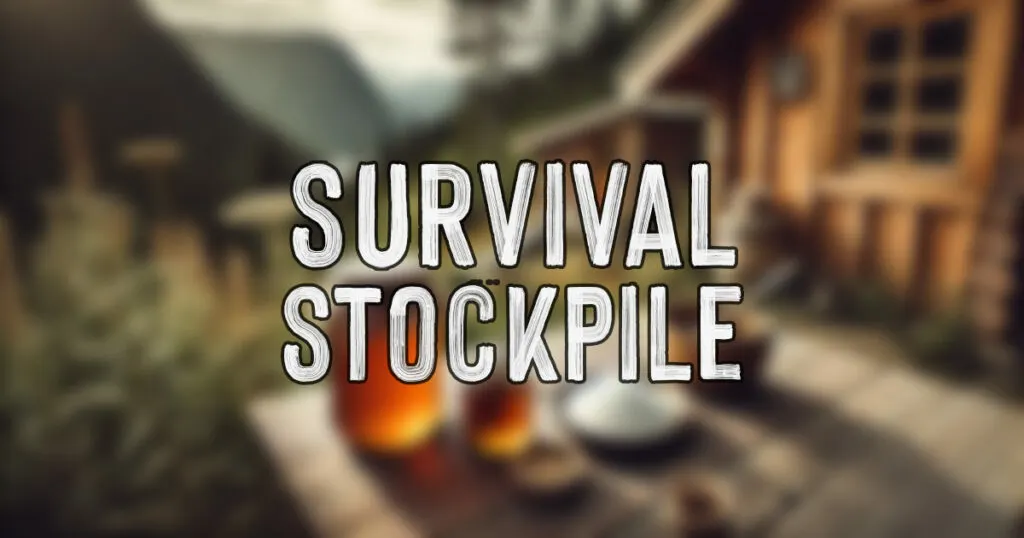
3. Financial Readiness
The Swedish government advises having enough cash on hand to last at least a week. While digital payments dominate our daily lives, cash becomes invaluable when electronic systems go down. Store small denominations for flexibility.
4. Evacuation Readiness
Preparedness isn’t just about staying put; it’s also about knowing when and how to leave safely. The pamphlet recommends having a go-bag ready with essentials like food, water, warm clothing, ID, and medications. Additionally, identify nearby shelters or safe zones and map out evacuation routes in advance.
5. Civil Defense and Community Resilience
One unique aspect of Sweden’s approach is their emphasis on civil defense. The country maintains shelters designed to protect residents from bomb fragments, chemical threats, and radioactive fallout. They also encourage community collaboration—working with neighbors to share resources and strengthen local preparedness networks.
Here in our context, while we may not have formal civil defense shelters, we can focus on identifying safe spaces in our homes or communities that offer similar protection.
6. Digital and Psychological Preparedness
Sweden highlights the risk of disinformation and cyberattacks during crises. To combat this:
- Use strong passwords and avoid clicking suspicious links.
- Verify news from multiple reliable sources before sharing it.
Additionally, the pamphlet addresses psychological resilience, encouraging people to stay connected with loved ones, maintain healthy routines, and limit overexposure to distressing news. These practices can help manage anxiety and ensure mental clarity during emergencies.
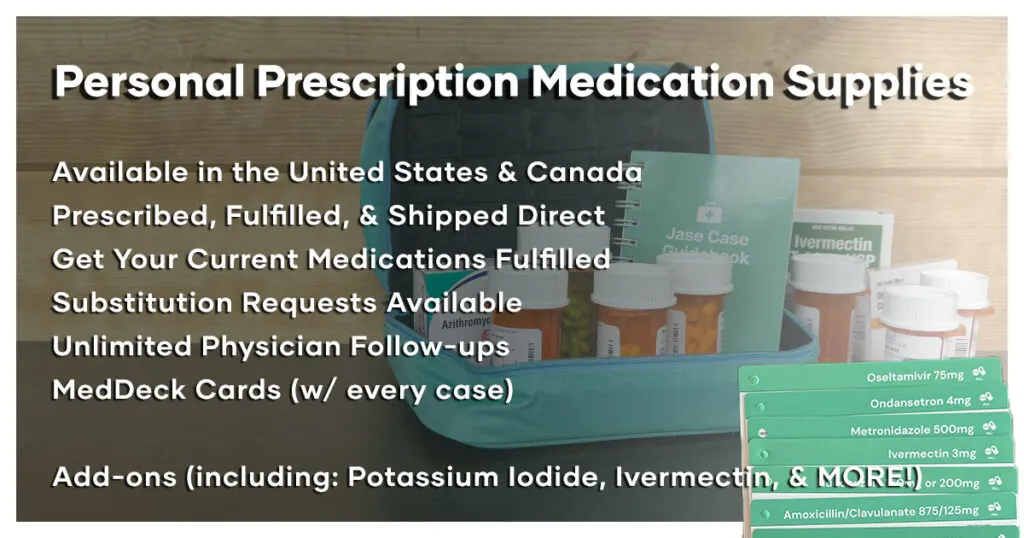
What We Can Learn
The Swedish government’s In Case of Crisis or War guide reinforces the importance of proactive, practical preparation. Whether it’s stocking your home with essentials, planning evacuation routes, or staying informed through trusted channels, the message is clear: preparedness is a shared responsibility.
And as you know, I’m committed to helping you stay ready for anything. Whether you’re facing a natural disaster, a societal disruption, or something as serious as war, the principles of preparedness remain the same. Start building your self managed insurance plan today—it’s not just about surviving; it’s about thriving, no matter what life throws your way.
Stay prepared, stay resilient, and as always, be ready for everything.
Pin it:
